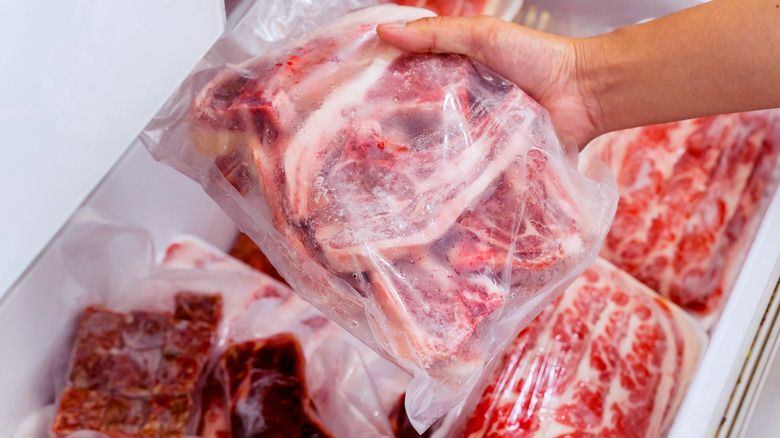Why Whole Foods Is Being Sued For False Advertising
As part of its core value system, Whole Foods promises to "nourish people and the planet" with the food it sells, from its produce to its animal products. "Have you heard the news reports about consumers' concern with antibiotics in the US meat supply?" asked Whole Foods Market President and Chief Operating Officer A.C. Gallo in a 2012 statement. "At Whole Foods Market: No antibiotics, EVER is our standard." Customers had no reason to doubt the meat sold at the popular Amazon-owned grocery chain — until this week, when the company was accused of mislabeling its beef products.
According to independent testing commissioned in April by the California nonprofit Farm Forward (whose mission is to eliminate factory farming), a strain of antibiotics was, in fact, recently detected in beef pulled from shelves at Whole Foods. Now, the nonprofit is suing the grocer in a class-action lawsuit alongside three consumer plaintiffs, citing concerns over both health and cost.
Traces of monensin were detected in Whole Foods beef
According to the nonprofit Farm Forward's class action lawsuit against Whole Foods, tests done on beef from the grocery chain in 2021 and 2022 showed that traces of the growth antibiotic monensin were found in one Whole Foods beef product, while the antiparasitic chemical fenbendazole was detected in five others. The nonprofit claims to have contacted Whole Foods in 2017 to help test its "No antibiotics, EVER" claim, and were allegedly turned down and told by an executive that "the repercussions for having a positive result were beyond ridiculous" (per NPR).
The plaintiffs' concern over Whole Foods' alleged false claims are not only related to their bodies (microbiologist Dr. Glenn Morris tells PBS that consuming meat with antibiotics can lead to serious health concerns, especially if improperly cooked), but also their wallets. According to Food & Wine, one of the Whole Foods beef products in question is priced nearly 30% higher than "conventional meat at other retailers." As such, the lawsuit aims not only to "[require] Whole Foods to correct and clarify its past and ongoing misrepresentations and omissions," but also compensate for the extra cash customers shelled out for what they thought was premium meat.
Some people believe that Whole Foods might not survive for much longer due to high prices and competition, and this latest blunder certainly isn't helping its cause.

